Friday, March 8, 2013
I’m taking a break from poetry to write a bit about Mother Teresa.
Questioning questioning? There are several articles making the rounds on facebook and blogs etc., questioning, exposing, criticizing, debunking, indicting, Mother Teresa and her 55 years of work with the poor that I find very vexing. I am an ardent admirer of Mother Teresa so to be honest my first reaction is a defensive one. But before considering engaging the accusations I want to offer a passage from Derrida’s last book/interview before he died, “Jacques Derrida, Learning to Live Finally, The Last Interview.” Derrida is being asked by Jean Birnbaum about the university and it’s relationships with the dynamics of ‘knowledge/power’ and the freedom of inquiry within the university system etc., and of course Kant and Heidegger are always lurking in the background behind all of these kinds of questions. Then Birnbaum asked Derrida about “holocaust deniers” and then they explore the limits of questioning itself. Derrida affirms holocaust denier Robert Faurisson’s right to questioning within the university but interestingly not his right to affirm (publish, promote, assert?) conclusions that Derrida says are “unacceptable from the point of view of attested and proven truth” (48). I am a mere Derrida dilettante and not a philosopher but that phrase “attested and proven truth” coming from Derrida really got my attention. Kind of like if Jesus’ last words on the cross were something like ‘my father my father why have you forsaken me.‘
(This is a link to an article that set me to the task of thinking about Mother Teresa
http://www.theglobeandmail.com/life/the-hot-button/mother-teresa-was-anything-but-a-saint-new-canadian-study-claims/article9317551/ )
My questions: are there certain questions, events, actualities that have been answered or affirmed so conclusively, like the holocaust event, that their truth should not and can not be un-affirmed? And how does the structural context of such questioning affect the possibility of questioning, of “attesting” (which I think some precocious doctoral student aught to pounce on for a dissertation). Does the life and work of Mother Teresa fit Derrida’s possible criteria that some propositions can be canonized by ‘attested proven truth?‘ (whatever that might be?). And further, can some kinds of testimony become sanctified by their accordance with the Holy Spirit?
The questioning of the article above asks something like: ‘did Mother T’s theology prevent her from alleviating suffering in some significant ways?’ First, for some reason even asking something like ‘what was Mother T’s theology’ strikes me as problematic. I know many of us spend a lot time trying to get words/sentences rightly ordered in appealing ways, or into combinations that make sense to us, or fulfill some perceived need for control or understanding, or structured in such a way that we think will help us make our way in the world, but I don’t think that that those sorts of language exercises really interested Mother T. I have read about everything she ever wrote, but if I had a chance to talk to her it would probably not even occur to me to ask her about her “theology.”
I just now opened up her diaries at a random bookmark. On page 275 she writes “Give Jesus a big smile--each time your nothingness frightens you.” Now I would never say something like that to anybody, and if I did they should punch me in the nose. But when she says to 'smile at Jesus,' those words dialogically hold more power and authority for me and over me. Even reading it again just now, I feel some surgence of faith and hope as if I have been existing in dark room and through the wall a mouse size hole of light has broken in and it beams some small ray of glorious light into my darkness. Remember, Mother Teresa started out by just picking up people who were dying alone in the street, loading them into a wheel barrow, carting them home and washing the shit and street sludge off of them and giving them some cleaner blankets to die in, holding them in her arms, praying for them (and not trying to convert them). And she and just a few others did this for 20 years before anyone even noticed. So when Mother Teresa tells me to smile at Jesus, I try to fu#%king smile at Jesus! I remember when she first gained some celebrity after Muggeridge’s book and movie came out in the early seventies. Lots of “radicals,” christian and otherwise, criticized her for wasting time and energy helping out individual poor people instead of leading a revolution against the oppressive systems causing the poverty and suffering in the first place. I have read and watched many interviews with her where she is asked this same kind of question over and over year after year. She always gave the same answer which was some version of the following, ‘...this is what Jesus has called me to do. You ask Jesus what you should do and go do that.‘ She drove both the ‘vulgar Marxists’ and the fundamentalist conservatives nuts. Here is an example in an interview with her by super-conservative ‘intellectual,’ William Buckley:
(http://www.youtube.com/watch?v=yRk11BCR6VI ).
Now in this interview Mother Teresa does not say what the article above claims is a quote from her (without any sourcing, and I have not been able to find it anywhere). The article “quotes” Mother Teresa saying: “There is something beautiful in seeing the poor accept their lot, to suffer it like Christ’s Passion. The world gains much from their suffering.” I don’t think that this quote is from Mother T. I think it is from Christopher Hitchen’s version of his misunderstanding of what Mother Teresa said in this interview. That is, that our suffering allows us to share in the suffering of Christ, as Christ shares in our suffering, and that in that sharing and revealing something beautiful in manifested in the world. These are the words of a mystic and a saint not a theologian or philologist as we usually talk about them, and I know I can’t fully understand what she means. I have tried most of my life to look at the pain and suffering of humanity and those I love as an expression of Christ’s presence in the world and in my life. But it is very hard to sustain and live that kind of belief, an impossible possibility really. William Buckley (like so many of us) can not see, feel, or think, beyond the horizon of his ideological mind-scape and he and Mother Teresa don’t even seem to be inhabiting the same kind of conceptual space in this interview. Like too much derivative philosophy/theology he is trying to play a game of scrabble with her, to score the most bonus points, to win an intellectual game by puzzling together an impressive matrix of inter-connecting lexemes. It becomes just another form of sophisticated fundamentalism that gives us the illusion of control and accomplishment. So when Buckley asks her about all those poor wretches that Mother Teresa *isn’t* helping he thinks he has shown how his pragmatic/libertarian/republicanism has triumphed over her naive and puny efforts at engaging the problems of the ‘real world.” But is Buckley really making any sense either inside or outside of his own logical positivist tautologies?
Mother Teresa just responds by saying that helping the poor is helping Jesus, what else is she going to say, what else does she need to say? Jesus spoke to her many times, she heard his actual voice tell her to go to india and minister to the poorest of the poor, and that attesting voice is what it all comes down to. All of it. Everything, for any of us. We have nothing else to go on in this world, no superior authority, no supra-affirming, ontic, validating source. God said stuff like: “help the poor, love your neighbor and enemies and sluts, move mountains, take up a cross, etc.. But people also believe that God said stuff like: “kill those Hittites, cut off the ends of your pricks, don’t eat bacon, drop atomic bombs on people, fly airplanes into buildings, kill sluts, and don’t touch this, them, or that, oh and I’ll be back from heaven really soon so y’all just wait up on your roof tops....” Push all of those words, commands, and affirmations around a scrabble board all you want to, but the only way off the game board is for the Spirit to snatch you right up into the sky and out of this world and into another one. Sometimes the Spirit puts you back on the board and sometimes She doesn’t (there just may be an outside the text after all!). And that’s what happened to Mother Teresa, and so she became, as she says, “a victim of God’s love.”
I have read Mother Teresa’s diaries and I know how often that she felt God had abandoned her, how many years she heard no voice telling what to do. Is it possible that she got it wrong? And as some of her critics ask, could she have figured out better or more ‘significant ways to alleviate suffering?‘ Should she have led a militant cabal of ninja nuns in her spare time at night and carried out strategic political assassinations of the capitalist pigs? I think if Jesus told her to, she would have done just that. But I know how much self-questioning Mother Teresa went through, and she does she seem self-delusional or psychotic to me, and there does not seem to be deep fissures between what Jesus spoke, what Mother Teresa spoke, what she believed, and what she did. Rather, the deep fissures that I encounter are between the lived faith of this blessed saint and my own pathetic failings and frivolous musings.
Blessings and obliged.
Subscribe to:
Post Comments (Atom)




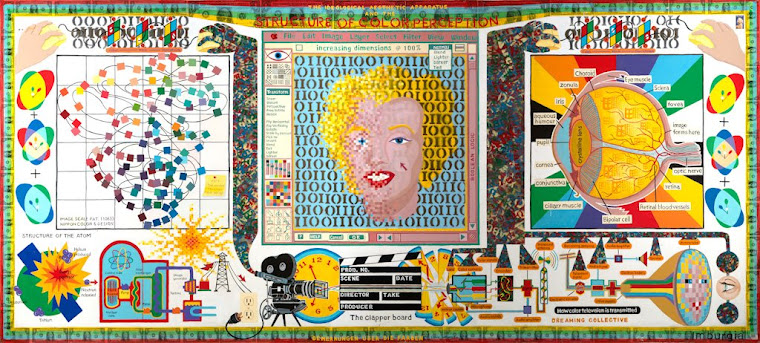

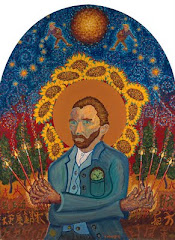


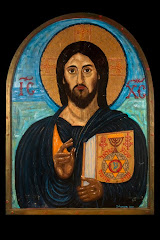
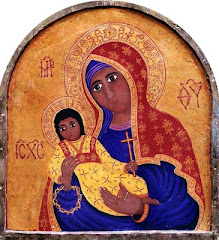

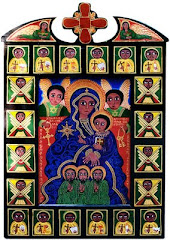

Thanks Dan . . . a nice supplement to the scramble game I played at my reading group yesterday (which was still fun, right?). Peace.
ReplyDeleteThanks David. What are y'all reading, Taubes? Obliged.
ReplyDeleteWe try to keep chapter/article length. Stop by some time.
ReplyDeletehttp://criticalconversation.wordpress.com/